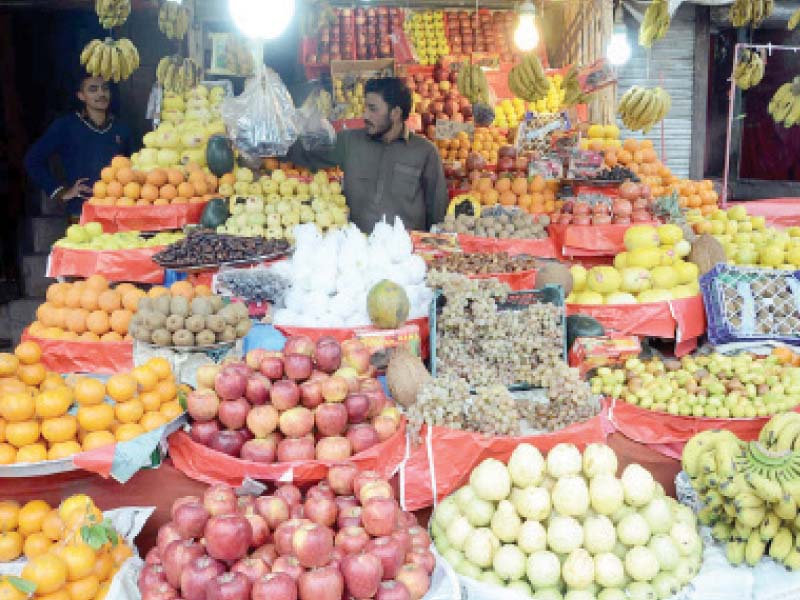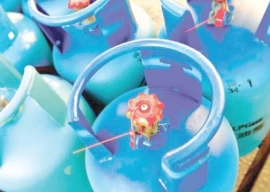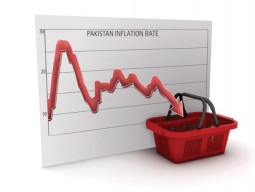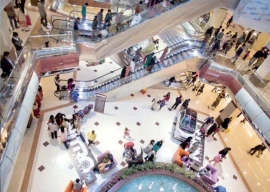
People in Pakistan have continued to pay higher prices, especially for food items, mainly due to supply constraints as the government has yet to overcome the shortage of essential commodities like wheat, sugar, tomato and onion.
A surge in doctors’ fee, drug prices and the cost of warm clothes ahead of winter also contributed to keeping inflation at elevated levels in the country in October 2020.
“The national Consumer Price Index (CPI) of October … increased by 8.91% over the corresponding month of last year ie October 2019,” the Pakistan Bureau of Statistics (PBS) reported on Monday.
It was slightly lower than the 9% inflation reading in the previous month of September and lower by 2.09 percentage points compared to 11% in October 2019.
“This (inflation for October 2020) is slightly below market expectations,” Next Capital MD Muzammil Aslam said while talking to The Express Tribune. “The market had expected an inflation reading of around 9.5% for the month.”
Pakistan Kuwait Investment Company (PKIC) Head of Research and Development Samiullah Tariq said the higher inflation level was mainly driven by high food prices as the government had yet to tackle the shortfall in supplies.
Giving breakdown, the PBS reported that the rural CPI inflation rose 7.32% in October on a year-on-year basis while urban inflation soared 11.31%.
The price of tomatoes increased by 66.93% in rural areas in October compared to the same month of last year, potatoes became costlier by 53.14%, wheat 52.21%, eggs 43.32%, pulse (moong) 40.94%, beans 37.91%, condiments and spices 36.6%, pulse (mash) 35.64%, sugar 32.97%, wheat products 31.52%, wheat flour 24.67%, butter 22.74%, pulse (masoor) 19.88%, chicken 18.22% and vegetable ghee 15.76%, according to the PBS.
Besides, the cost of personal effects increased by 19.42%, water supply 18.92%, garbage collection 16.26%, doctor (MBBS) clinic fee 14.73%, woollen clothes 13.48%, cleaning and laundering 11.39%, furniture and furnishing 9.7%, marriage hall charges 7.55%, drugs and medicines 6.91%, hosiery 6.7%, construction input items 6.13% and construction wages 5.78%.
Aslam added that inflation remained on an uptrend mainly due to supply-side shocks in food items. Otherwise, the non-food inflation has mostly remained under control.
Although the rate of inflation dropped slightly, it still was at elevated level. “The impact of the number (inflation at 8.91%) is high on the masses, mainly in urban centres,” he stated.
The government needed to focus more on improving food supplies and achieving food security to protect the vulnerable section of society, he stressed.
Food prices are expected to come down with the arrival of new crops of vegetables. “November is the vegetable season. Prices come down when supplies improve,” he said.
Tariq said food prices should come down as the government had started importing wheat and sugar to bridge the shortfall in supplies and control prices.
Secondly, sugar mills have switched on their boilers and will soon start sugarcane crushing for the new season. “This should bring down the sweetener’s price as well,” he said.
Besides, the reduction in petroleum oil prices by the government for November should also help restrict the pace of inflation in the country, he said.
Tariq estimated the inflation rate at 8.5% for the current fiscal year while Aslam saw inflation in the range of 7.5% to 8.5%.
The State Bank of Pakistan (SBP) has projected the full-year inflation in the range of 7-9% while the International Monetary Fund (IMF) anticipates an 8.8% reading for the year.
Aslam said a slight drop in house rent helped keep inflation below market expectations. Home-owners mostly did not increase rent but may have slightly reduced it to help tenants cope with the Covid-19 challenge.
According to the two experts, it is the supply-side and cost-push effect. It has nothing to do with the monetary policy. The State Bank will not react to the development and will adopt a wait-and-see strategy.
Published in The Express Tribune, November 3rd, 2020.
Like Business on Facebook, follow @TribuneBiz on Twitter to stay informed and join in the conversation.


















COMMENTS
Comments are moderated and generally will be posted if they are on-topic and not abusive.
For more information, please see our Comments FAQ